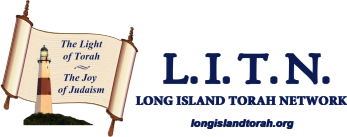Vayechi
The Text:
Before his passing, Jacob gives each of his twelve sons a blessing – a personal message addressing his unique character and destiny. The Talmud [Pesachim 4a] recounts a story:
[There was once] a certain individual who would say, “Judge my case!” [i.e. he insisted that every dispute be resolved in a court of law, and otherwise refused to relinquish his claim - Rashi.] This showed that he was descended from [Jacob’s son] Dan, as it is written [in the Torah, in Jacob’s blessing to Dan] “Dan shall judge his People…”
The Question:
Dan was blessed with a positive attribute - the drive to pursue justice and truth. By contrast, the man in the story who always insisted on his legal rights is hardly an admirable figure. How did his shortcoming derive from the blessing of Dan?
The Answer:
Every character trait has boundaries. Love of truth is a virtue – but unless a person carefully monitors his behavior, the pursuit of justice can lead him to become argumentative and inflexible. The individual in the story had a gift, but failed to refine it and maintain its proper balance. As a result, he developed negative habits that no longer reflected the positive quality from which they originally stemmed.
The Message:
There is a subtle “line of demarcation” separating the good from the bad in human behavior; every positive quality borders on a similar negative one. Only by carefully monitoring our behavior and investing effort into character development can we ensure that we use our gifts as blessings. Otherwise, our very assets may turn into our greatest deficiencies.
Click below to open a printable pdf
Before his passing, Jacob gives each of his twelve sons a blessing – a personal message addressing his unique character and destiny. The Talmud [Pesachim 4a] recounts a story:
[There was once] a certain individual who would say, “Judge my case!” [i.e. he insisted that every dispute be resolved in a court of law, and otherwise refused to relinquish his claim - Rashi.] This showed that he was descended from [Jacob’s son] Dan, as it is written [in the Torah, in Jacob’s blessing to Dan] “Dan shall judge his People…”
The Question:
Dan was blessed with a positive attribute - the drive to pursue justice and truth. By contrast, the man in the story who always insisted on his legal rights is hardly an admirable figure. How did his shortcoming derive from the blessing of Dan?
The Answer:
Every character trait has boundaries. Love of truth is a virtue – but unless a person carefully monitors his behavior, the pursuit of justice can lead him to become argumentative and inflexible. The individual in the story had a gift, but failed to refine it and maintain its proper balance. As a result, he developed negative habits that no longer reflected the positive quality from which they originally stemmed.
The Message:
There is a subtle “line of demarcation” separating the good from the bad in human behavior; every positive quality borders on a similar negative one. Only by carefully monitoring our behavior and investing effort into character development can we ensure that we use our gifts as blessings. Otherwise, our very assets may turn into our greatest deficiencies.
Click below to open a printable pdf
| vayechi_snapshot_and_closer_look_template_final.pdf | |
| File Size: | 994 kb |
| File Type: | |

